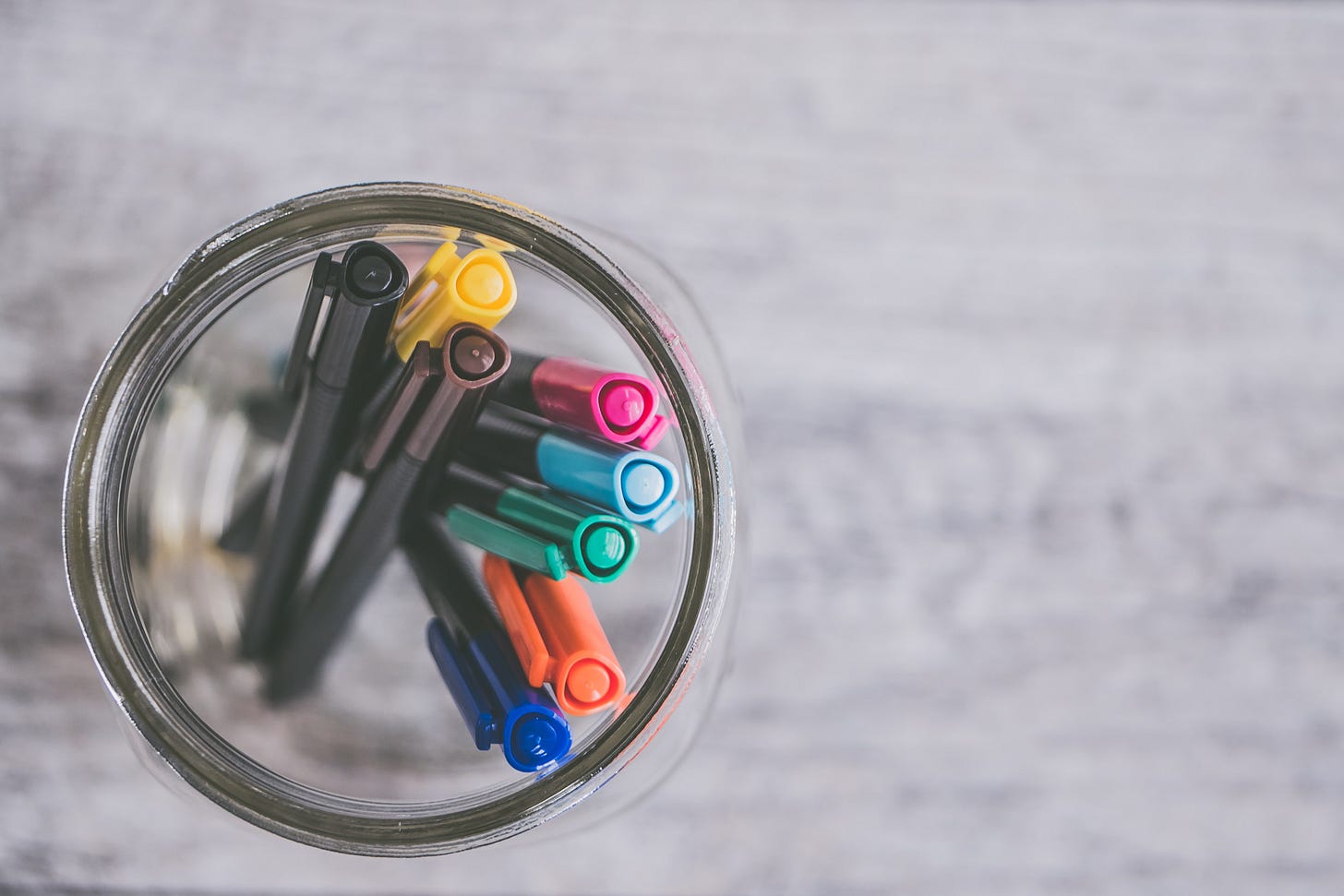Achievement and Intellectual Value: The Oil and Water of ADHD
The two great tastes that don't seem to taste great together

I graduated high school with a 2.12 GPA. I could not get into a state college after graduation. I spent a year at a community college, hoping to do well enough to be accepted to a state school as a transfer student. In other number news, I have a 142 IQ. These two numbers do not compute when you put them together.
This probably should have indicated to everyone trying to deal with my “high-ability, low-achieving” self that something was amiss.
High school was a horrific time for me. Not only was I one horribly awkward-looking kid, but I had this whole lack of ability to achieve thing going for me. I am pretty sure my friends and classmates thought I was a total idiot.
My teachers were not shy in calling me out on not doing my work. There seemed to be a culture of shaming kids into doing well in school that happened in the 80s. I also spent a solid amount of time grounded because of my grades. Kinda hard to hide that.
The horrible thing that I wish could be undone for so many of us is that in our most formative years, when our brains are still developing and when we are most impressionable, the main source of our perception of our value to the world is wrapped up in one thing: our grades.
Imagine for a second what the world would be like if we raised kids to think that grades were only one part of their achievement and value. Here’s where we fail kids.
We perpetuate that the higher the GPA, the more valuable the student. The one certain speaker at every single high school graduation? The valedictorian. I’m unsure why. Because I can guarantee that the valedictorian ain’t the smartest kid in the class. Don’t believe me? I have receipts.
A study by a Boston researcher explored what happened to class valedictorians after graduating and focused on 81 valedictorians over 14 years. What did they go on to achieve? Nothing spectacular.
The study showed that high-achieving high school students could not replicate their success beyond high school. Sure, they did achieve, but they seemed to peak in high school.
They’re not millionaires. They’re mostly working in offices, making good money in exceptionally traditional careers. They’re accountants, lawyers, and engineers. They are freakishly well-adjusted people. They were nudged into a box in their early years, and they stayed there.
The innovators of the world are not coming from the class valedictorians. The school system rewards conformity. Interestingly there is an odd correlation between creativity and achievement.
So, let’s consider us neurospicies on the other hand. We struggled through high school (particularly more so if we aren’t diagnosed as kids). Our grades may have sucked, but that does not mean we’re not smart. We’re really smart. Just not in a traditional sense.
We are exceptionally creative. Personally, I feel like my creativity was born out of my ADHD. I had to find things that worked for me. The workaround required some kind of invention.
It would be so remarkable if we were rewarded for the process we create rather than the ones we don’t follow. What’s one way we know for certain we can get our ADHD brains onboard with something? We gamify it. Holy crap, the ingenuity that takes.
I drink eight glasses of water every single day. But, I’m not proud of myself for it. What I’m proud of is that I hacked my brain to remember to drink the water by having my Amazon Echo play a different water-themed song every hour on the hour throughout the day. It’s inventive and god damn hilarious.
If the song “Waterfalls” by TLC randomly starts playing in my house, I know it’s 2pm and I need to chug the glass of water I have been ignoring next to me.
Neurotypical people do not require this level of creativity to manage their everyday lives. They stick a glass of water next them, and then they drink it without a reminder, as if by magic.
People who are considered high achievers early in life are assumed to be smart. And they are. But they success relies so heavily on following convention, not bucking it.
I knew plenty of people like this when I was in school. They were successful because they had an uncanny knack for following the rules and fitting inside a box. I had friends that lived for extra credit.
The only meaning that extra credit has for ADHD students is that it is the thing we beg for two days before the grade book closes so that we can stay up for two days straight and save ourselves from failing a class at the last minute.
The hard part about all of this is that by the time we become adults, the damage is done. Not only has our self-esteem been chipped away because we couldn’t seem to fall in line with the system, it has also stripped us of our desire to continue with our never-rewarded creativity.
I taught high school English for four years. You know what kids I loved? The ones who didn’t have the answer to an essay question on a test but came up with something that was not technically the answer but made sense anyway.
The ones that applied a weird kind of logic that made me look and the answer and say, “Well, technically, that’s kind of true.” I gave them credit for the answer. Every time. I always felt that level of creativity should absolutely be encouraged.
It turns out I was right. You know who goes on to be more successful than the school valedictorian? That kid. The valedictorians don’t pursue careers in altruistic positions where they are making changes to systems. They become the system.
The creative kids that teachers claim to enjoy but actually find annoying as hell because they challenged everything? Those kids go on to found startups, head major non-profits, and write law. Those kids are the ones changing the world.
This is what I mean when I talk about harnessing ADHD as a superpower. Just because our path to success and achievement doesn’t look like what is commonly rewarded doesn’t mean that we are less valuable to the world. It just means our version of working hard is not ignoring the superpower. The box wasn’t made for us.
Late to My Own Party will always have free essays and resource newsletters, as my intention is to help others feel seen and know more about themselves and their brains. If you think someone you know would benefit from this newsletter, please share it with the link below.
I have created an AMAZING paid subscription that includes a private FB group, monthly video calls, online social events, and discounts on products. Upgrading also helps support this content and allows me to do work to help us all feel more seen and understood.




